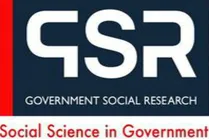IER News & blogs
IER literature reviews, commissioned as part of the Review of Post-18 Education and Funding, published
 The Department for Education published three IER literature reviews commissioned as part of the Augar Review:
The Department for Education published three IER literature reviews commissioned as part of the Augar Review:
• Dickinson, P. (2019) Choices students make between different post-18 education routes. London: Department for Education. Read the short summary in the press release here.
The Review of Post-18 Education and Funding, launched by the Prime Minister in February last year, was led by Philip Augar, and reported its findings on 30 May.
Investing in adult education: health and well-being benefits

The APPG for Adult Education commissioned the Warwick Institute for Employment Research in 2016 to conduct research into the needs of adult learners. This work was supported by the Institutes for Adult Learning (IALs). The nine Specialist Designated Institutions (SDIs), including City Lit, Morley College, Hillcroft College, Northern College, Ruskin College, Working Men’s College, Mary Ward Centre, Fircroft College and the Workers’ Educational Association (WEA),– each has its own identity, mission and distinctive approach, which adds to the rich diversity of adult education.
Our primary focus was on adult education, and on adults returning to learn. Learning can occur in education or training institutions (offline or online), the workplace (on or off the job), the family, or cultural and especially, community settings. Findings from this in-depth study highlighted local and newly Combined Authorities will be accountable for the allocation of funds with Local Enterprise Partnerships (LEPs) in setting the agenda and identifying priorities within local communities. It is, therefore, critical that the contribution of adult education, including its contribution to improving health and well-being (which are pre-requisites for progression into and within employment), must not be lost or forgotten within current and any new devolution arrangements.
It is clear that most providers of adult education have invested in reaching out to people who are disadvantaged one way or the other. Many of whom would not otherwise know about adult education and what it could do for people in their circumstances. Adult education providers have developed the expertise, teaching skills and resources to deliver non-qualification provision and/or bite-sized units that successfully engage these adults in learning again, offering a stepping stone to success. Therefore, any policy or practical interventions need to reflect this and provide flexibility. Post-devolution, local Skills Commissioners will be required to make investment decisions - which is why their role is so central to the sustainability of adult education now and in the future.
IER'’s formal ‘Call for Evidence’ in 2017 has a distinctive focus on adult education, health and well-being. The main purpose is to gather the views of key stakeholders, partners and providers on the contribution of adult education to health and wellbeing outcomes. We have deliberately not attempted to define the parameters of the Call For Evidence too tightly as we want respondents to explore many different aspects of health and wellbeing. We hope to hear from those interested in any aspect of physical or mental health, including health and wellbeing in the context of age, disability, ethnicity, gender and location. For further information contact: Dr Deirdre Hughes OBE, deirdre.hughes@warwick.ac.uk.
Researching the needs of adult learners
The All Party Parliamentary Group for Adult Education has commissioned the University of Warwick’s Institute for Employment Research (IER) to undertake research which will provide insight into the needs of adult learners. It will also consider how policy and practice should adapt in the next five to ten years to increase participation and attainment. There is a particular focus on disadvantaged adults and those who may find education challenging. The research is being supported by the Group of Specialist Designated Institutions (of which WEA is one). The research findings will be shared with the All Party Parliamentary Group for Adult Education in July.
Interested in contributing?
Call For Evidence – IER are looking for contributions from interested individuals and institutions to build a view on the current state of policy and practice in adult education as well as looking ahead to what may need to change in the near future.
– IER are looking for contributions from interested individuals and institutions to build a view on the current state of policy and practice in adult education as well as looking ahead to what may need to change in the near future.
Adult Students’ Survey – IER are also looking for responses from current and recent adult students through an online survey aimed at gaining an understanding of what works and what needs improvement in current practice.
– IER are also looking for responses from current and recent adult students through an online survey aimed at gaining an understanding of what works and what needs improvement in current practice.
If you have any questions about either please contact sally-anne.barnes@warwick.ac.uk.
Latest IER report on Apprenticeship considers employer response to funding reforms
A new report by researchers from IER and IFF Research has been published by the Department for Business, Innovation and Skills. The report, 'Employer Routed Funding: Employer responses to funding reform' (BIS Research Paper Number 161), explores how employers’ engagement with the apprenticeship programme would vary depending on how funding is reformed.
Expert Workshop - methodological issues in estimating returns to Higher Education, Further Education and Skills
IER and Cambridge Econometrics are currently undertaking a review of the literature looking at seven key methodological issues in estimating returns to Higher Education, Further Education and Skills. The project is sponsored by the Department for Business, Innovation and Skills (BIS).
As a part of the project, a one day workshop is being hosted at the University of Warwick and is being chaired by Prof Peter Elias (IER). A number of academics will come together to hear findings from the review and to discuss their views and experiences of these issues. The aim of the study and the workshop is to set forth recommendations for BIS (and others) to utilise in future analysis so that the estimated economic value added of different forms of learning are robust and representative of the true underlying returns.
